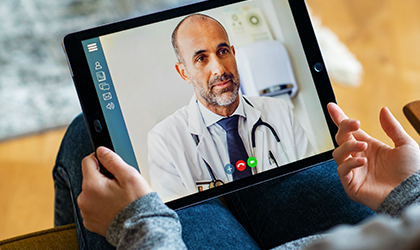Drug Pricing in Africa: The Hidden Healthcare Crisis

Access to affordable medicines is a cornerstone of public health. Yet across Africa, millions of people struggle to buy even the most basic drugs. According to the World Health Organization (WHO), up to 50% of Africans lack access to essential medicines, with high drug prices being a major barrier. The issue of drug pricing in Africa is not just a healthcare challenge — it is also an economic and social crisis that fuels inequality and preventable deaths.
Why Drug Prices Are High in Africa
1. Heavy Dependence on Imports
Africa imports over 70% of its medicines, making drug prices vulnerable to exchange rate fluctuations, global supply chain disruptions, and international market volatility.
2. Weak Local Manufacturing
Limited pharmaceutical manufacturing capacity means fewer affordable, locally made drugs. Without strong local production, Africa remains at the mercy of foreign suppliers.
3. High Distribution Costs
Poor infrastructure, weak supply chains, and multiple middlemen in the distribution process increase final prices before medicines reach patients.
4. Taxes and Tariffs
In some African countries, medicines are still subject to import duties, taxes, and markups that make them unaffordable for low-income households.
5. Lack of Transparent Pricing Policies
Opaque pricing systems and weak regulations allow inconsistencies, with the same medicine costing double or triple in different parts of the same country.
The Impact of High Drug Prices
1. Rising Mortality Rates
Patients who cannot afford medicines often delay treatment or resort to ineffective alternatives, leading to avoidable complications and deaths.
2. Out-of-Pocket Burden
In Africa, out-of-pocket payments account for up to 40% of total healthcare spending, pushing many households into poverty.
3. Inequality in Healthcare
High-income earners and urban residents have better access to medicines, while rural and low-income populations are left behind.
4. Weak Progress Against Major Diseases
Diseases like malaria, tuberculosis, and HIV remain difficult to control when patients cannot afford long-term treatment.
5. Reduced Trust in Health Systems
When patients cannot access affordable medicines, they lose confidence in formal healthcare systems and turn to informal markets, which often sell counterfeit drugs.
Solutions to Drug Pricing and Affordability
1. Strengthening Local Pharmaceutical Production
Investing in local manufacturing will reduce reliance on imports, stabilize prices, and make essential medicines more affordable. Countries like Nigeria and South Africa are beginning to develop pharmaceutical hubs, but more investment is needed.
2. Government Price Regulation
African governments can implement stronger policies to regulate medicine prices, ensuring transparency and fairness across the supply chain.
3. Expanding Universal Health Coverage
Health insurance schemes can protect households from catastrophic medical expenses, making drugs more affordable and accessible to vulnerable populations.
4. Removing Taxes and Tariffs on Medicines
Eliminating import duties and taxes on essential drugs can significantly lower prices for consumers.
5. Leveraging Technology and E-Pharmacy Platforms
Digital health innovations and e-pharmacies can reduce middlemen, improve price transparency, and make affordable medicines more widely available.
6. International Partnerships
Collaboration with global organizations, donor agencies, and the private sector can bring technical expertise and funding to reduce drug costs and improve access.
Case Studies
-
Ghana’s National Health Insurance Scheme has improved access to affordable medicines for millions.
-
Rwanda successfully removed taxes on essential medicines, reducing prices and improving availability.
-
South Africa’s generic drug policies have lowered treatment costs for HIV/AIDS, saving lives and setting an example for the continent.
Conclusion
The crisis of drug pricing in Africa is a silent but deadly challenge. High medicine costs continue to deny millions of Africans their right to healthcare. However, with stronger local production, transparent pricing policies, universal health coverage, and digital health solutions, Africa can break the barriers to affordable medicines. Ensuring that no one has to choose between food and life-saving drugs is not just a healthcare goal — it is a moral and economic imperative for the continent.
Written by Fawzi Rufai, Medically Reviewed by Sesan Kareem



